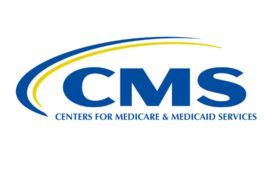
The front of U.S. Supreme Court in Washington, D.C. (Adobe stock photo)
The U.S. Supreme Court has turned back a third Republican challenge to the Affordable Care Act (ACA), this time by a 7-2 vote.
The latest challenge to the law popularly known as Obamacare came from Texas and other states, backed by the administration of former President Donald Trump. The justices ruled that the challengers lacked legal standing for their case. They did not address part of the law known as the “individual mandate,” which requires Americans to have health insurance and which the complainants sought to overturn as unconstitutional.
“The state plaintiffs allege indirect injury in the form of increased costs to run state-operated medical insurance programs. They say the minimum essential coverage provision has caused more state residents to enroll in the programs,” Justice Stephen Breyer wrote for the court. “The States, like the individual plaintiffs, have failed to show how that alleged harm is traceable to the Government’s actual or possible action in enforcing [the individual mandate], so they lack Article III standing as a matter of law. But the States have also not shown that the challenged minimum essential coverage provision, without any prospect of penalty, will injure them by leading more individuals to enroll in these programs.”
Enacted in 2010, the ACA’s individual mandate originally carried a monetary penalty for most people who refused to obtain health insurance coverage. Congress struck down the monetary penalty provision of the law in 2017.
The court ruling drew praise from the Medical Alley Association, Minnesota’s medtech trade group. “This ruling provides stability for doctors, families and patients, making it easier for them to focus on providing and receiving high-quality care,” said Bobby Patrick, VP of strategic partnerships and policy. “Our members look forward to continue working and innovating every day to increase access, improve outcomes and lower costs for patients around the country.”
Medtech trade group AdvaMed also weighed in. “The Supreme Court has spoken,” said AdvaMed president & CEO Scott Whitaker. “ObamaCare appears to be here to stay, and we remain committed to supporting the law, as well as any and all policy ideas that would improve patient access to the medical technology industry’s lifesaving innovations.”
“The continued survival of the ACA despite formidable legal challenges suggests that the courts are unlikely to substantially limit its reach,” added Minneapolis attorney Stephen Lucke, a partner at Dorsey & Whitney and co-chair of its health litigation group. “Indeed, both the concurrence and dissent commented on the lengths to which — in their view — the Court acted to ‘save’ the legislation. Although the Court’s latest decision rests on constitutional grounds that limit the Court’s ability to intervene in matters in which no injury is traceable to the challenged conduct, the fact that the Affordable Care Act has now survived a ‘trilogy’ of challenges suggests that until Congress acts, its provisions are here to stay.”
Overturning the law would have had enormous consequences in 2022, according to an analysis by the Urban Institute, including:
- An additional 21.1 million people would have been uninsured, a 69% increase nationally.
- 9.3 million people would have lost income-related subsidies for marketplace insurance.
- Medicaid/CHIP coverage (acute care for the nonelderly) would have declined by 22% nationally, or 15.5 million people.
- The number of people with individually purchased (nongroup) insurance would have fallen by 7.6 million. In almost all states, the remaining nongroup coverage would have had a lower value (e.g., lower benefits, higher cost-sharing requirements, higher administrative costs as a percentage of the premium) than the nongroup coverage provided under the ACA’s framework.
- Uninsurance would have increased by about 85% for both Black people (from 11% to 20%) and white people (from 8% to 15%); by about 75% for both American Indians/Alaska Natives (from 13% to 24%) and people who are Asian/Pacific Islander (from 11% to 19%); and by about 40% for Hispanic people (from 21% to 30%). In addition, the coverage gaps between white people and every other specified racial/ethnic group would have increased.
Justice Clarence Thomas filed a concurring opinion. Justices Samuel Alito and Neil Gorsuch dissented.
This article has been updated with comments from the Medical Alley Association, Advamed and Minneapolis attorney Stephen Lucke.




